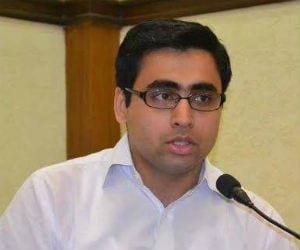Despite being the one of the largest ethnic groups in the Middle East, numbering perhaps 35 million, the Kurds were denied a nation of their own. This is a result of the deliberate Anglo-French who carved up the map of the collapsed Ottoman Empire following World War One.
Kurdish culture predates the births of Islam and Christianity, going back some 2500 years. Ethnically, Kurds are not Arab nor Turkish rather they have their own distinct identity. Today, the Kurds are predominantly Sunni Muslims and geographically, the Kurdish people are divided between four adjoining states.
Kurdistan, the Kurdish homeland, was forcibly divided and today lies within the present-day borders of Turkey, Iraq, Iran, and Syria with some smaller portions in Armenia and Azerbaijan. The Kurdish areas within these countries are usually the poorest and least developed, systematically marginalized by the centres of economic power.
Historically, the Kurds would often fight for the groups that succeeded as regional powers, for which they earned a reputation for being fierce fighters.
Following the dissolution of the Ottoman Empire, the Kurds, like many other groups in the region, were guaranteed a homeland by the Treaty of Sevres in 1920. Yet when Mustafa Kemal Ataturk rose to power and Turkey’s borders were formalized in the 1923 Treaty of Lausanne, the Kurds were still not given a country of their own. After years of oppression and marginalisation, the group has emerged as a key political and military force in the Middle East.
But after their precipitous rise in Syria, Kurdish aspirations are now very high.
The recent declaration of federalism in Kurdish-controlled areas in Syria, called Rojava, is now being viewed as a bid to become a tipping point that might help change the artificial borders of the Middle East established after the First World War following the notorious Sykes-Picot agreement.
Among all the domestic political forces of Syria, the Kurds are crucial participants in the fight against the radical Islamists and they are being considered as a credible ally by both West and Russia.
The Kurds, unlike many active groups in Syria, have an identity that is based on ethnicity, not on religion. They contain a powerful, secular charge. Moreover, the Kurds can become one of the keystones for the rebirth of statehood after the civil war ends, especially as a part of Syria’s future armed forces.
It’s not only Syria that is seeing the rise of Kurds in the national arena but neighbouring countries, such as Turkey and Iraq, are also feeling a greater magnitude of the Kurdish pulse. Iraqi Kurds are now directly selling their oil to Turkey, bypassing the Iraqi government. The Baghdad government seems also to have accepted, though unwillingly, that the Kurds can sell their oil on the open market via the Turkish terminal at Ceyhan, on the Mediterranean. For years its oil ministry had refused to let them do so.
Recently Iraqi Kurdistan President Masoud Barzani announced that “the time has come for world leaders to rethink the boundaries of the Middle East and for the Kurds to have a state of their own in the region.” He said that the time is ripe to hold a referendum on an independent Kurdistan.
Further, Kurdish separatist insurgency in Turkey has posed the United States’ NATO ally with a huge strategic conundrum and has sown deeper unrest in the country. Now, Turkey has been negotiating directly with the PKK and its jailed leader, Abdullah Ocalan.
Today, Kurds are at the heart of the Middle East’s most pressing crises and at the outset of the twenty-first century they have achieved their greatest international prominence. In Iraq and in Syria where the state’s authority is collapsing, the Kurds are grabbing their opportunities.
The Kurds expect to consolidate their gains over the territory they control and that means acceptance of Kurdish state in Syria and Iraq. If the peace process is put back on track in Turkey, the Kurds will want the establishment of Kurdish autonomy inside Turkey as well.
The Kurds realize that this may be the best time for them to push their agenda in the region. The two superpowers, the United States and Russia, realise this too. If played right, the Kurdish card represents a counterbalance to dictators like Bashar-Al-Assad and Islamic radicals, like ISIS. They could help negotiate the entire Middle East out of the current dangerous bend in its history with the promise of a new regional order that reflects its immense ethnic, religious and linguistic diversity.
It is too soon to visualize what shape the Middle East will take once the dust of the current conflicts settles. What seems increasingly evident is that the new regional reality will include an emergent Kurdistan perhaps as an autonomous region within a state or even a totally independent state. It’s a hard reality that at this point in time, the Kurds in each country are closer than ever to achieving self-determination.




